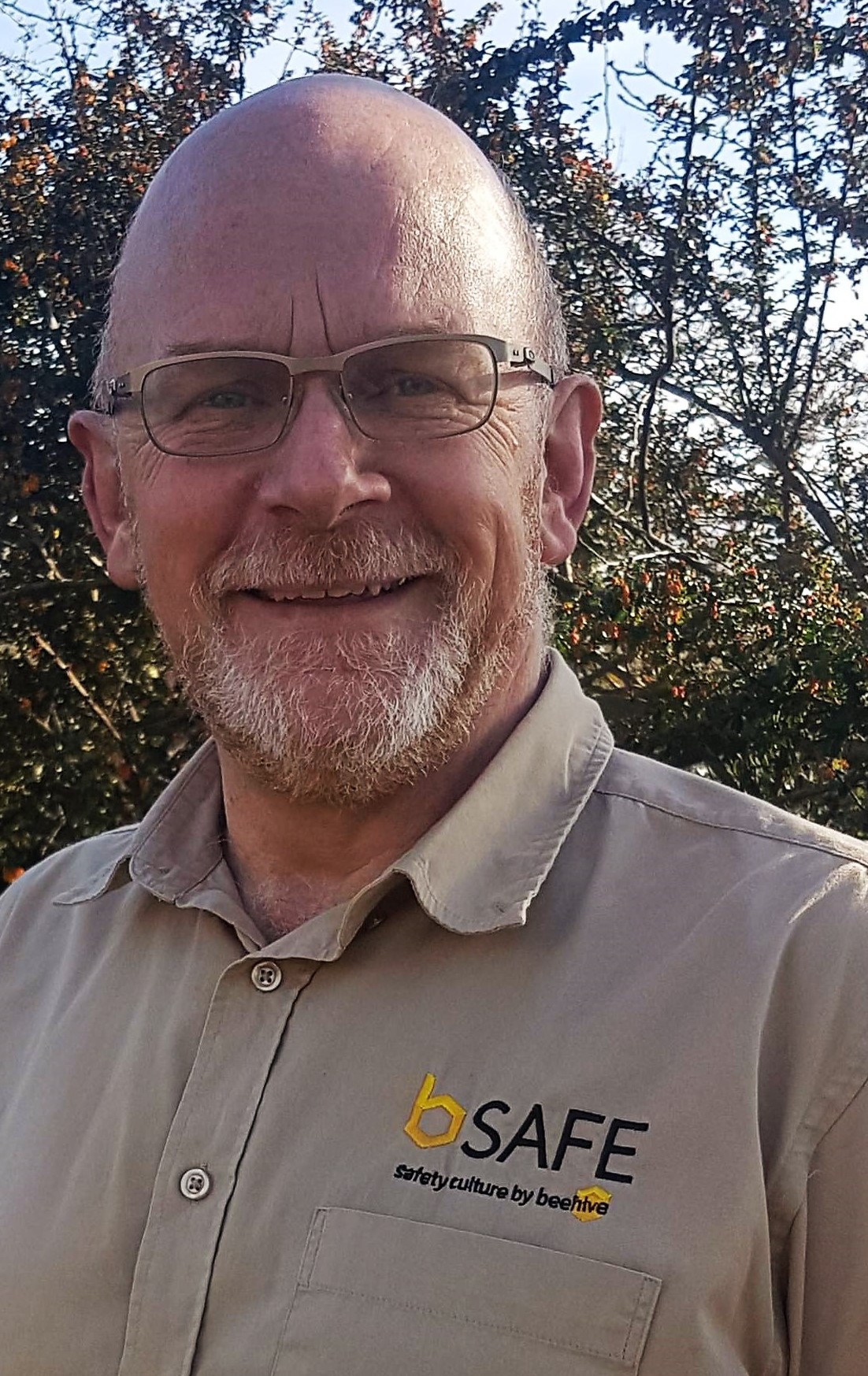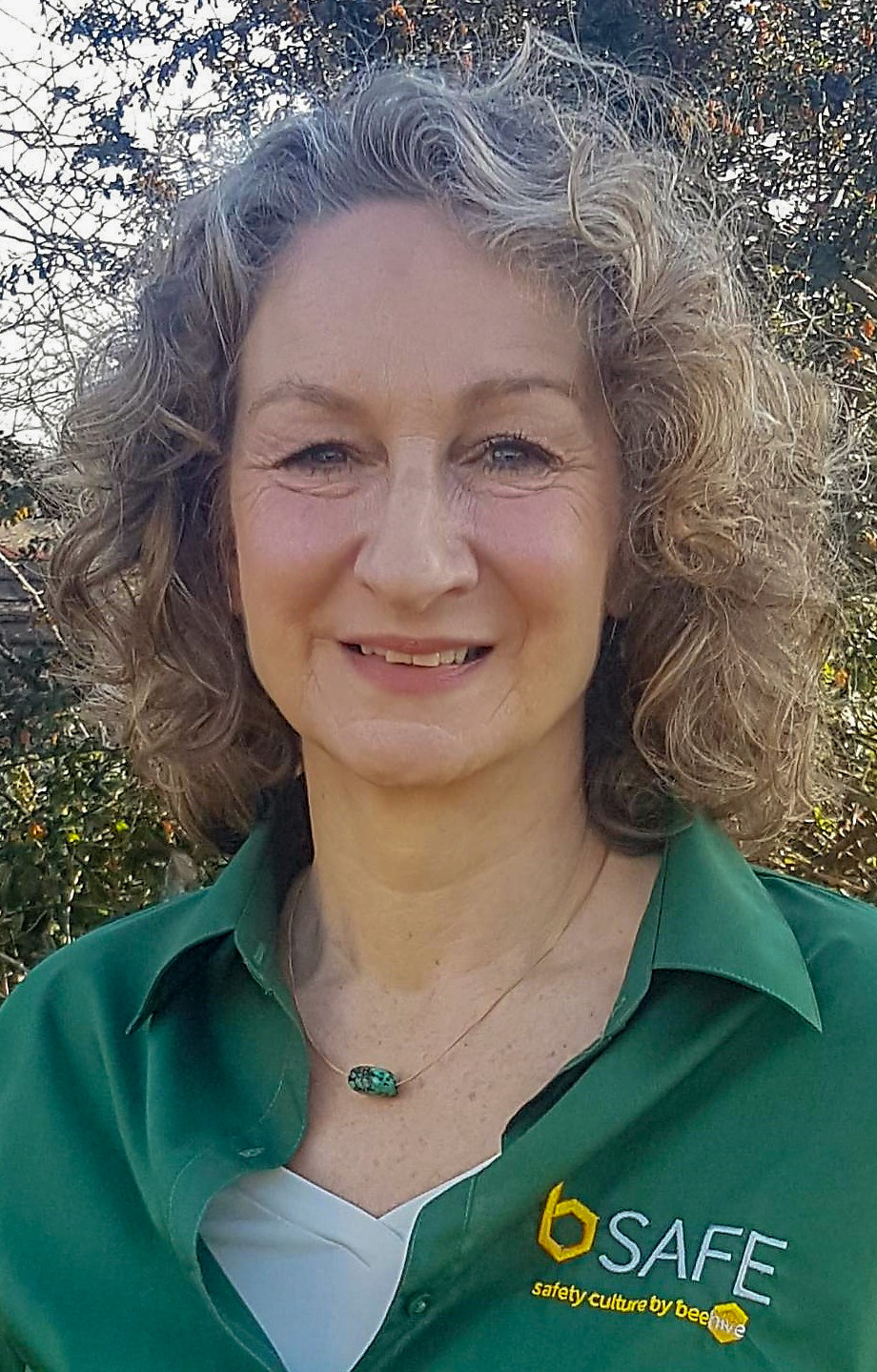 07798866242
07798866242
 07798866242
07798866242
Do you want to create an environment in your organisation in which you trust your employees and they trust you? Do you want to reduce the numbers of accidents, defects and injuries? Do you want to take the next step in safety culture? Do you want to do 'Safety Differently?'
Beehive's 'B.safe Trust-based Safety Culture Model' is the result of research carried out between 2013 and 2015 by Beehive in partnership with Bangor University's Wales centre for Behaviour Change and Alstom Power Services. Trust was found to be the most important interpersonal factor in Interdependent safety culture as measured on the DuPont Bradley Curve. But trust is an attitude, not a behaviour. You cannot mandate for trust. All you can do is create an environment in which trust is encouraged to flourish. And to do this, your organisation, management and employees have to be trustworthy.

b.SAFE is Beehive's safety culture brand. We are at the cutting edge of behavioural safety research, having partnered with Bangor University's Psychology Department and Paul Carter, neuro-psychologist, to explore new areas of behavioural safety, in particular the key interpersonal factors that most impact on safety behaviour. The work we do is appreciated by our clients:
'This is a cutting edge company for behavioural safety way ahead of their rivals. I should know I worked with them when developing our company behaviour programme. Achieved amazing results. Just ask our clients 😀', Mick Edwards, EHS Manager at GE

The b.SAFE D2iP Safety Leadership Programme is a 12 month leadership programme designed to develop the behaviours and skills that most contribute to a high performing safety culture . It is specifically designed to build a trusting work environment using the b.SAFE D2iT Trust-based Safety Culture Model. We believe that investing in the development of your most valuable and often most expensive resource pays dividends - see here to see how one D2iP participant from a client organisation got a six-figure ROI from the D2iP programme. Find out more about our b.SAFE D2iP Safety Leadership Programme and how you can build trust into your safety culture and get similar returns on your investment.
The D2iP is an NSAN endorsed programme. This is a quality standard given to high quality training provided to the nuclear industry for which there is currently no industry standard.
Beehive is an employer-nominated approved provider for the National Skills Academy Nuclear, specialising in individual and organisational behaviour change.
There is now growing recognition of the contribution to safety culture of non-technical training such as the development of coaching, mentoring, leadership and management skills – areas where Beehive excels. Beehive is involved in the development of Human Performance capacity in the nuclear sector at a time when recent significant research and analysis of accidents has highlighted the need to focus on the Human Performance aspects of organisational arrangements within the nuclear industry to enhance the development of High Reliability Organisations (HROs). Regulatory authorities now increasingly require employers to provide a clear demonstration of organisational competence in the area of Human Performance and that’s where we can help your organisation.
We are able to deliver training to nuclear industry standard, including the two-day The Nuclear Triple Bar Manufacturing workshop, and the one-day Human Performance Fundamentals workshop.
Launched on March 12th 2018 ISO 45001 is the new international safety standard that replaces OHSAS 18001. The new standard is designed to change the position of EHS from one of being ‘bolted on’ to the business to it being ‘built-in’ to organisational systems. This shift in focus represents a real opportunity for cultural change.
A look at some of the key differences between the two standards might help to explain why. ISO 45001 includes:
These changes have the potential to be what is known in the field of organisational development (OD) as ‘second order changes’ – change that can transform organisations.

Most behaviour change initiatives fail because the type of change required is misdiagnosed. Most culture change initiatives fail because the wider implications of the changes required aren’t fully understood or accommodated. Organisational development is a field which includes:
As an OD consultancy Beehive is perfectly placed to help organisations make the changes to mindsets, skills and tools needed to transition to ISO 45001. If you have certification to OHSAS 18001 you will have a window of three years to migrate to ISO 45001 to maintain the validity of certification (see NQA Information re 45001). And because ISO 45001 represents an opportunity for cultural rather than simply procedural change, the soone
The use of reenactment is a common learning tool in safety critical industries where learning through trial and error is not an option. The use of actors, role play and reenactment engage and immerse participants in a way second only to real life, allowing them to rehearse and debrief specific scenarios and situations to give them a new way forwards or to maximise the learning.
b.SAFE reenactment workshops combine our 20 years of experience of organisational behaviour, cutting edge research into safety behaviours, highly skilled and experienced actors and expert Beehive facilitators to enhance behaviour change in areas such as:
Beehive now offers a one-day introduction to Human Performance workshop, the b.SAFE 'Fundamentals of Human Performance'. ‘Human Performance focuses on both reducing errors and managing defences to create immunity from significant events’ (UK Nuclear Human Performance Forum).
To view introductory slides please download them here Human Performance Introductory Slides. For more information please contact Beehive on 01492 550 960 or email Sara at sara@beecd.co.uk.
"This is a cutting edge company, way ahead of their rivals. I should know, I worked with them developing our company behaviour programme. Amazing results, just ask our clients. Mick Edwards, HSE Manager, GE"
Beehive has been working in the field of behavioural safety and safety culture for the last seven years, applying its organisational development expertise and tried and tested behaviour change approaches to safety critical sectors including the nuclear and power industries. b.SAFE is Beehive's safety culture brand.
The change from ISO 18001 to 45001 requires significant shifts in both behaviours and culture, and Beehive is ideally positioned to support organisations through the transition process.
Watch Ross White, Assurance Director for Loram UK, tell Mark Sykes of Beehive why trust is important to safety. Ross has been building the safety culture at Loram with the help of Beehive, the D2iP Safety Leadership Programme, and the D2iT Trust-based Safety Culture Model.

Interdependency is the safety culture associated with the fewest accidents and injuries and is therefore the safest way of working - (ref research Du Pont Bradley Curve).Trust is the key interpersonal component of Interdependency - (ref Beehive/Bangor University research).
Trust is an attitude. To increase trust and therefore interdependency it is necessary to demonstrate you are worthy of trust by displaying trustworthy behaviours - (ref Beehive/Bangor research &Trustworthiness Elements)
If you demonstrate trustworthiness through the five principles, others are invited to reciprocate and therefore trust and interdependency builds. The five Principles are:
The D2iP b.SAFE Safety Leadership Programme is designed to introduce the five principles of trustworthy behaviour and trustworthy leadership within the organisation.


Recruiting employees with the right safety attitudes and behaviours is much more cost effective than trying to change those behaviours at work. At the very least, recruiting people who are open to learning and change will make changing behaviours easier in the future. Beehive provides:
to ensure you get not just the skills but the behaviours and attitudes you need. Download our 'Top Five Tips for Behavioural Interviewing' here.
Beehive Coaching and Leadership Development Ltd